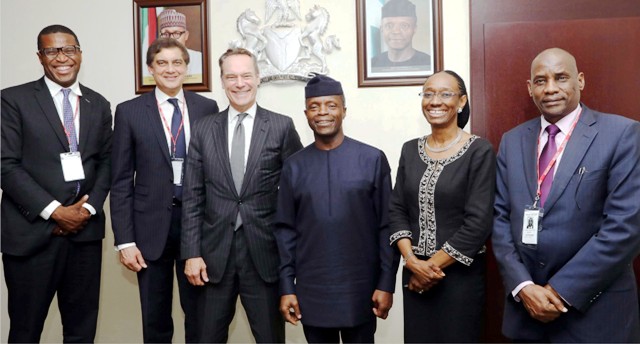Business
Nigeria, Indonesia’s Largest Trade Partner – Envoy

Indonesia’s Ambassador to Nigeria, Mr Harry Purwant has said that Nigeria remained Indonesia’s largest trade partner in spite of fall in trade volume between the two countries.
Purwanto, who stated this at a news conference on the forthcoming 72nd Independence Day of Indonesia in Abuja, said that the embassy was committed to strengthening economic ties between the two countries.
He said Nigeria-Indonesia bilateral trade reached four billion dollars in 2014 but fell to two billion dollars in 2016.
The envoy blamed this on the low price of crude, which he said was the largest export product from Nigeria to Indonesia.
“We still import the same volume of crude from Nigeria but the falling oil price in the international market contributed to the low trade,” he said
He, however, said that the volume of non-oil exports to Indonesia increased by 12 per cent in 2016.
Puwanto said trade relations relied on private sectors and expressed commitment to ensuring growing trade ties by educating Indonesia’s business community on investment potential in Nigeria.
He said successful Indonesian companies already operating in Nigeria were good testimonies of good trading relations with the Southeast Asian nation.
“In July 2017, the two countries agreed to explore ways of facilitating enhanced, balanced and sustainable trade relations, including reduction of tariff and non-tariff barriers,” he added.
He said about 480 Indonesians were residing in Nigeria, the figure he said was lower when compared to about 2,000 Nigerians in Indonesia.
He blamed this on the cost of securing Nigerian visa, which discouraged many Indonesians from visiting Nigeria.
The envoy lauded the bilateral relations between the two countries, saying Nigeria and Indonesia were natural partners with many commonalities.
He said this included huge economic potential, shared ideals and strong sense of responsibility of international causes as influential nations in Asia and Africa.
“As true partner for peace and development, Indonesia strives to deepen relations with Nigeria in terms of capacity building.
According to him, about 200 Nigerians have undergone different capacity building programmes in Indonesia since 2008 in different sectors.
He said this included agriculture, fisheries, oil and gas, good governance, women empowerment, health, poverty reduction, Zakat and endowment, arts and culture and sciences.
Business
Fidelity Bank To Empower Women With Sustainable Entrepreneurship Skills, HAP2.0
Business
President Tinubu Approves Extension Ban On Raw Shea Nut Export
Business
Crisis Response: EU-project Delivers New Vet. Clinic To Katsina Govt.
-

 News2 days ago
News2 days agoAmend Constitution To Accommodate State Police, Tinubu Tells Senators
-

 Politics2 days ago
Politics2 days agoSenate Urges Tinubu To Sack CAC Boss
-

 News2 days ago
News2 days agoDisu Takes Over As New IGP …Declares Total War On Corruption, Impunity
-
Business2 days ago
President Tinubu Extends Raw Shea Nuts Export Ban To 2027
-
Business2 days ago
Crisis Response: EU-project Delivers New Vet. Clinic To Katsina Govt.
-
Business2 days ago
President Tinubu Approves Extension Ban On Raw Shea Nut Export
-
Business2 days ago
FG Pushes Cassava Bioethanol Drive To Boost Industrial Growth
-
News2 days ago
25 Killed In Adamawa Jihadist Attacks

